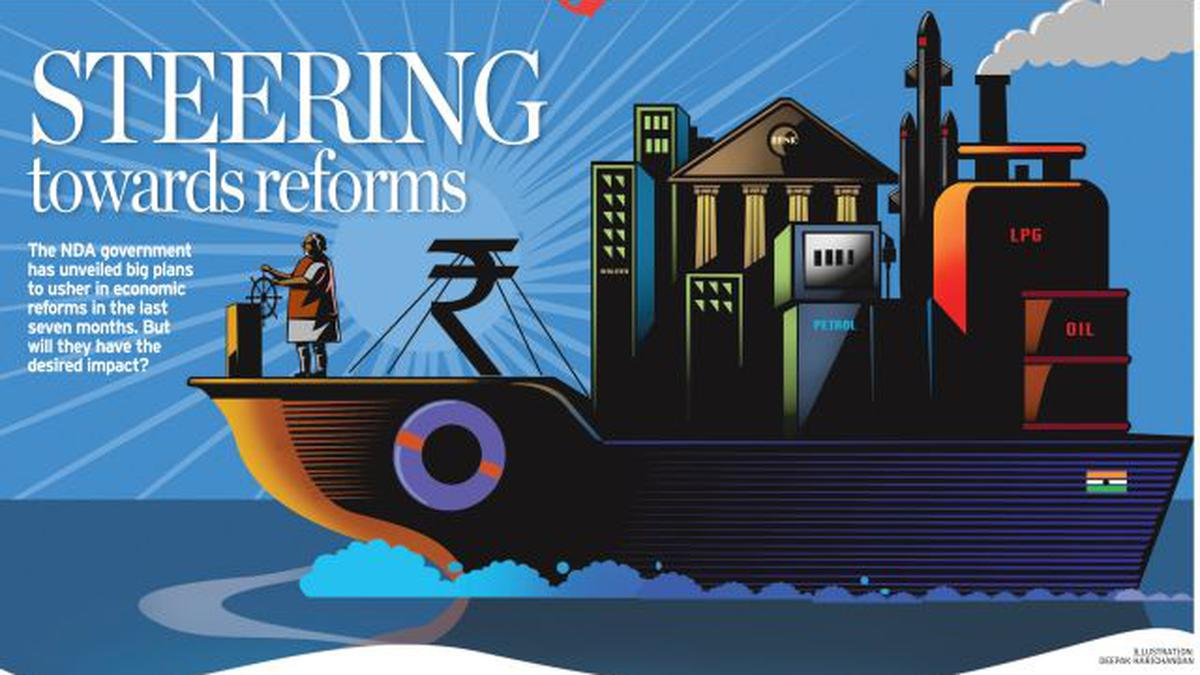19 Jan LPG Reforms in India
LPG Reforms in India
Relevance for Prelims: LPG reforms in India, Daily Current Affairs for UPSC
Relevance for Mains: Significance of LPG reforms
Indian Economic Policy was influenced by Fabian Socialism since its independence. This led Indian Economy to lean towards protectionism and strong control of the state over Industries. The Balance of Payment Crisis was necessitated.
India to open its economy to the world thus bringing LPG reforms.

LPG Reforms in India
FACTORS THAT LED TO LPG REFORMS
- Licensed Raj: Legislations like MRTP (Monopolistic and Restrictive Trade Practice) not only slowed down the quantum of production but also strengthen control of the quality of products.
- Almost Autarky: High Tariff Barriers and the Inconvertibility of the Rupee made India almost an autarky.
- Balance of Payment Crisis: Gulf War led to a mismatch in expenditure and receipts which further led to BOP Crisis.
- Nudge by IMF: Stark choices presented by International Monetary Fund provided an impetus to open the economy to the world.
The Indian Government quickly responded by
- Deserving Industries
- De-regulation of Industrial Sectors
- Financial and Tax Reforms (Role of RBI reduced, Deduction in Corporate Tax)
- Foreign Exchange Reforms
- Removal of Trade Barriers
IMPACT OF REFORMS
- Increase in Foreign Investment: By 2016, India received around more than $ 100 Billion in FDI which was almost negligible in Pre-LPG Era.
- Exponential Growth in GDP: Barring Inflation and Currency devaluation, the size of an economy shot from 6 lakh crore to more than 140 lakh crore.
- Stability in Prices: The prices of essential goods and services have been relatively stable since the introduction of LPG reforms barring a few exceptions.
- Rise of Middle Class: The arrival of MNCs and supply-demand dynamics has led to rising of the Middle Class in the India Economy. Irrespective of the increase in the size of the economy and exponential rise in GDP, inequality in the country has further increased as Globalization has posed tough challenges to domestic industries in terms of the quality of products and services.
There have been several reforms taken by the Government to fill the loopholes which were left even after 1991 reforms like the Goods and Service Tax, IBC, and Direct Tax Code. The 1991 reforms were successful in taking out the Indian Economy from the woods. The COVID-19 Pandemic has therefore necessitated outlining the new reforms.
Source
Download the PDF Now:
Plutus IAS Current Affairs 19th Jan 2023
Daily Current Affairs for UPSC
To gather knowledge of the world Polity, Economics, Society, Culture, and other incidents of the world, every UPSC aspirant should current affairs regularly. Plututu IAS provides the best daily current affairs for the UPSC examination with national and international news. It also delivers weekly and monthly current affairs for IAS exam preparation. So, collect the latest current affairs today for UPSC exam preparation.




No Comments